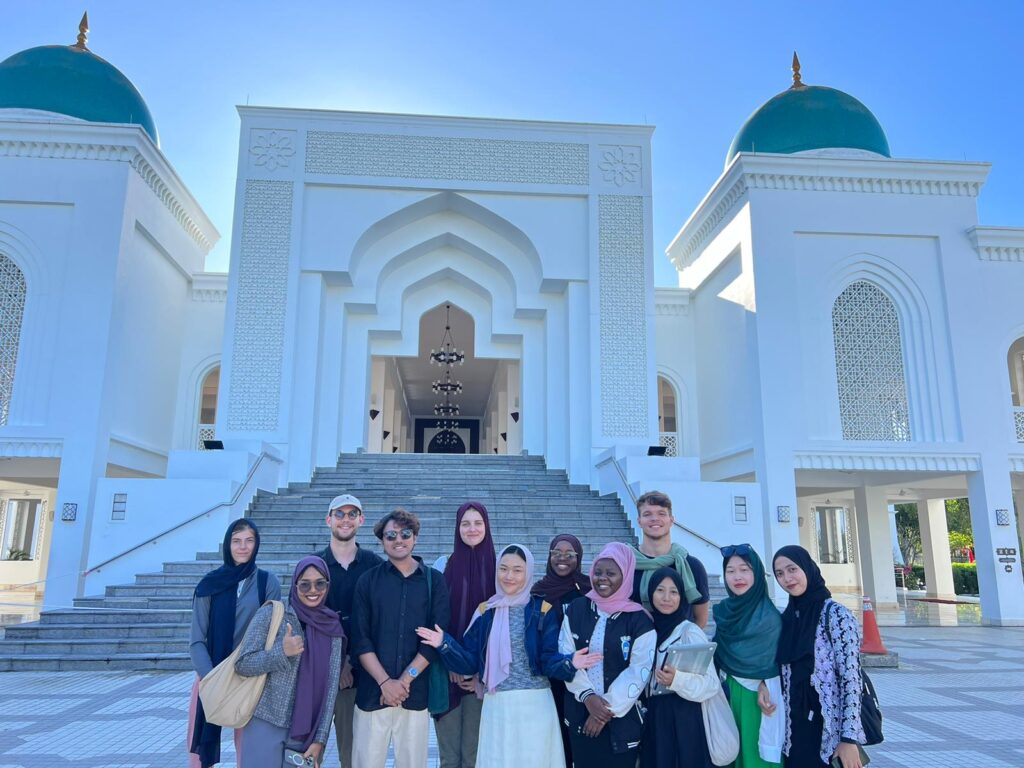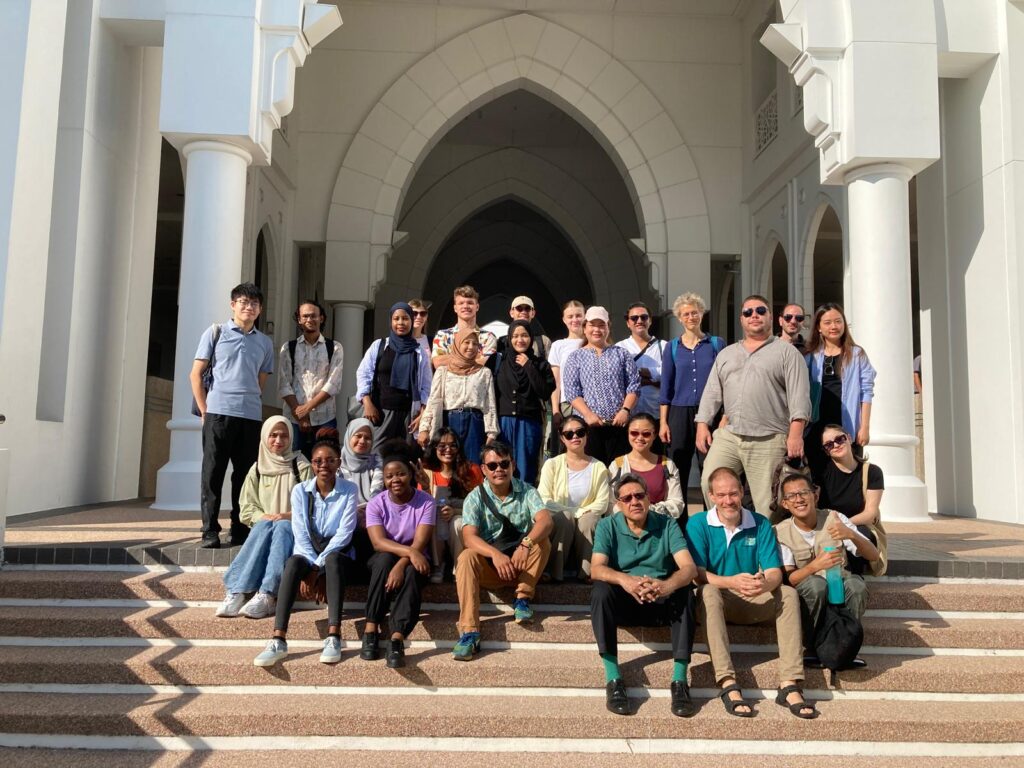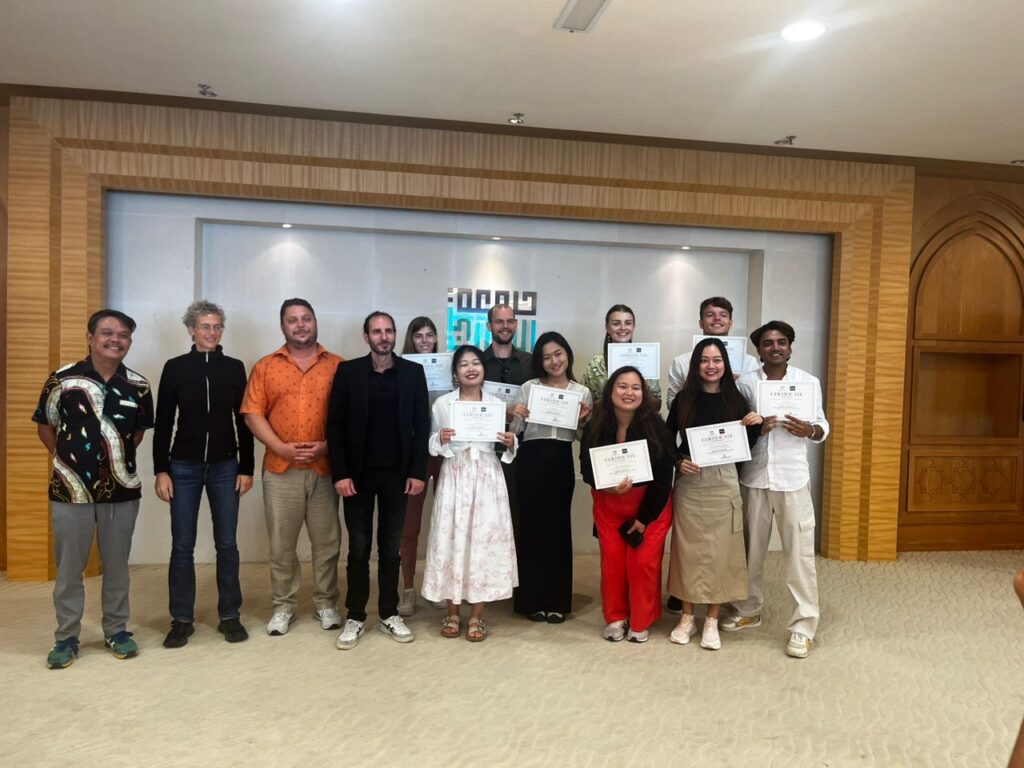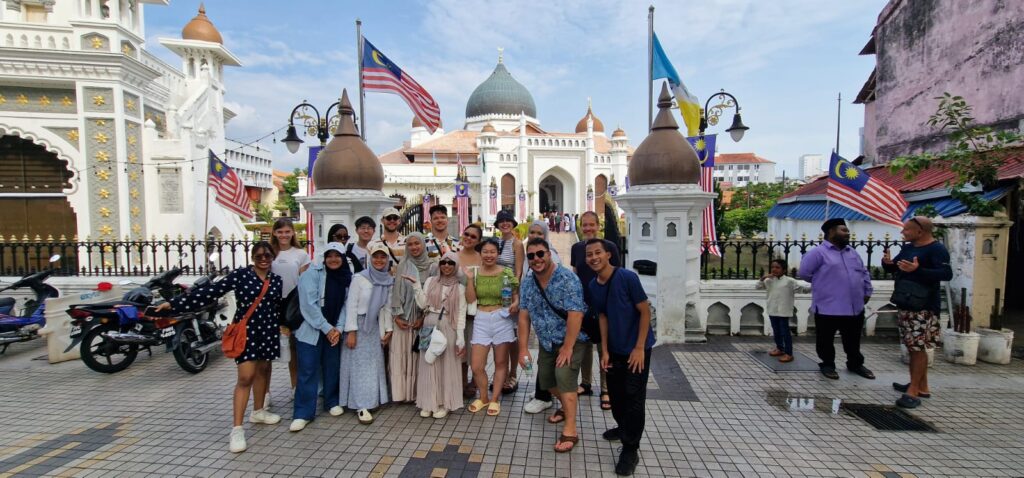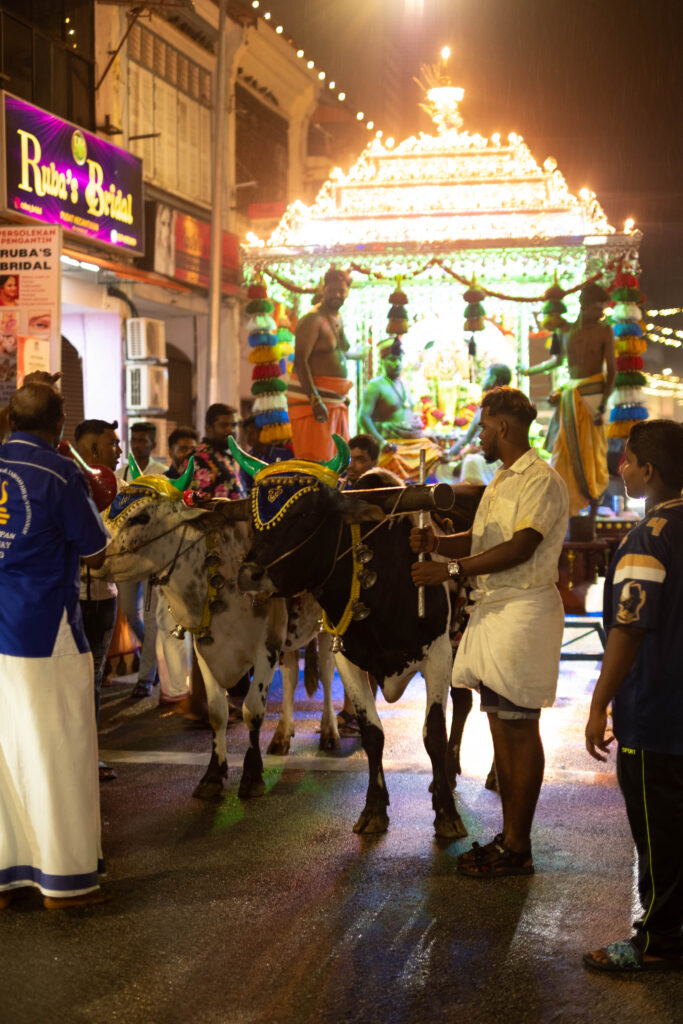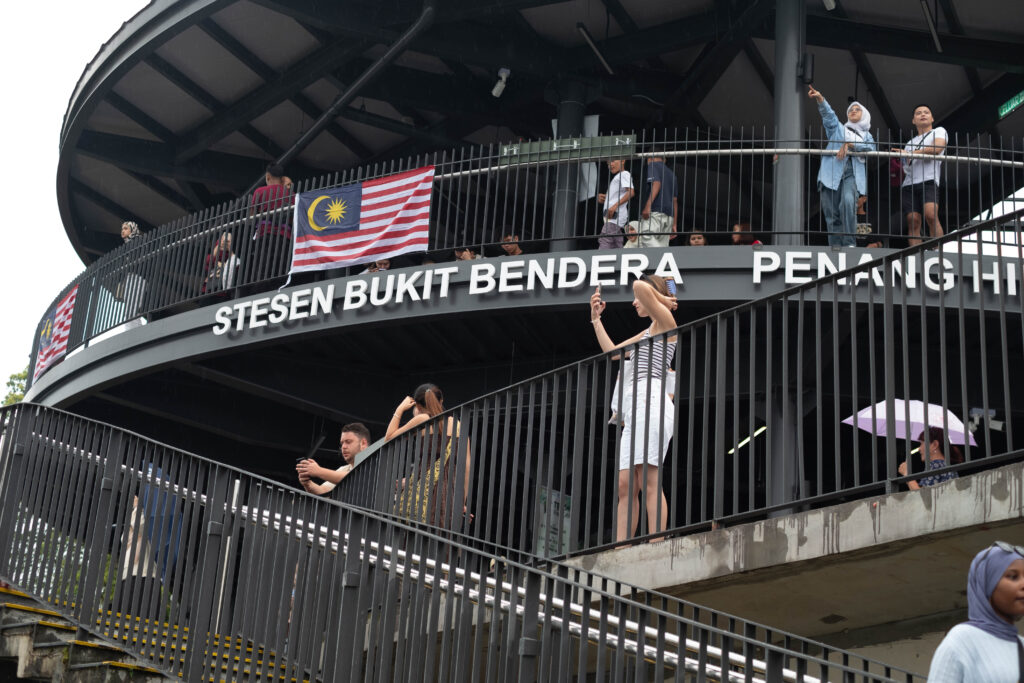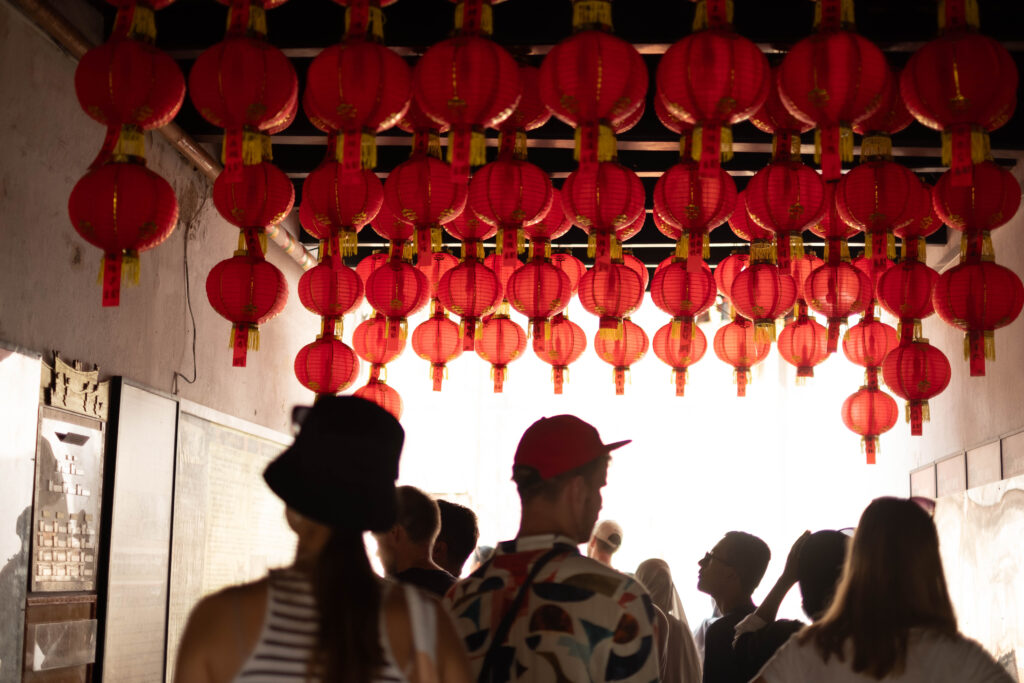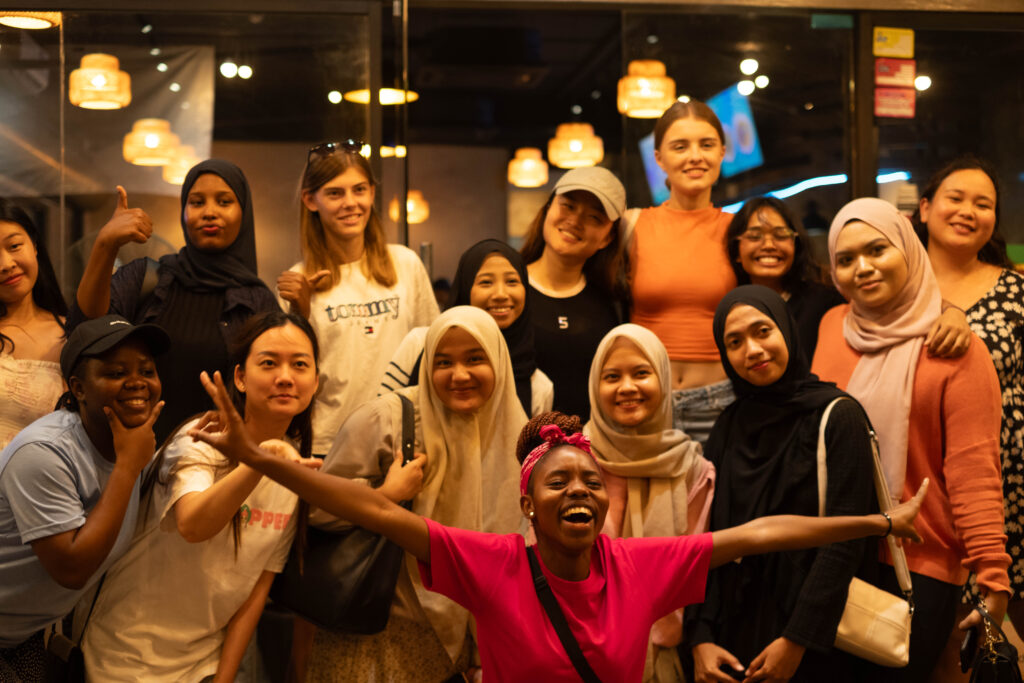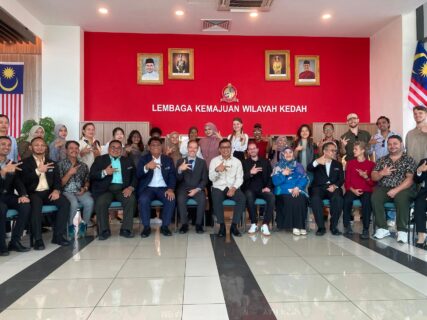SDAC Summer School 2024: Interdisciplinary International Summer School in Malaysia: Social Inequality through the Lens of Area Studies
We are excited to announce the success of our recent summer school program, “Malaysia: Social Inequality through the Lens of Area Studies.”
This program was a collaborative effort between SDAC / FAU – Ferdi, Oleg, Viola, Prof. Giovanni Maltese from the Theology Department, and Albukhary International University (AIU), Malaysia, represented by Assoc Prof Frederik Holst. We hereby, thank all of the faculty members from FAU and AIU for making this summer school a huge success.
This compact and interdisciplinary course offered students a unique opportunity to explore the intricate dynamics of social inequality and its intersection with social business. The program aimed to investigate how political, economic, historical, cultural, and societal structures, as well as identity factors such as gender, religion, and ethnicity, influence the effectiveness of social business initiatives in addressing social inequality.
Highlights of the Program
The summer school was structured to maximize both theoretical learning and practical experiences. Here’s a closer look at the key highlights:
Our students discovered innovative approaches to creating a fairer society
The program kicked off with a warm welcome and introduction by Assoc. Prof. Dr. Suraya Hanim Mokhtar and Dr. Noorul Hafidzah Zawawi, setting the stage for a dynamic and engaging learning experience. This was followed by an insightful lecture on “Yunusian Zeroism Towards a Better World-Making” by Dr. Reazul Islam, which explored innovative approaches to creating a fairer society.
Experiencing how social business can serve as a tool for sustainable development
Prof. Dr. Faiz Shah led a comprehensive session on “Socio-Economic Inequality and the Potential of Social Business Solutions,” where participants examined the roots of social inequality and how social business can serve as a tool for sustainable development. The session was interactive, encouraging participants to think critically about potential solutions. The next day focused on real-life examples and case studies during the “Lessons from Changemakers” session led by Assoc. Prof. Dr. Tengku Shahrom bin Tengku Shahdan. Students gained practical insights into how social business can combat inequality.
Theoretical discussions continued with sessions on “Implications of Class, Technology, and the Environment on Social Inequality” by Assoc. Prof. Dr. Frederik Holst and “Social Inequality from an Islamic Human Rights Perspective” by Dr. Muath Amayreh. These lectures provided diverse perspectives on social inequality, deepening students’ understanding of the subject.
Collaboration among participants from diverse backgrounds.
The weekend allowed for informal group meetings and discussions, fostering collaboration among participants from diverse backgrounds. The second week began with student group meetings to finalize preparations for field trips, followed by the “Presentation of Student Projects,” where students showcased their innovative ideas on addressing social inequality through social business.
Exciting Excursions
Participants embarked on field trips to Baling and Sik, as well as Lembaga Kemajuan Wilayah Kedah (KEDA) and Lembaga Zakat Negeri Kedah (LZNK). These excursions offered firsthand insights into the challenges and operations of social businesses in rural Northern Malaysia, providing a valuable opportunity to apply theoretical knowledge to real-world contexts. The program featured the “Presentation of AIU Students’ Social Business Projects,” where students presented their solutions and reflections based on their field experiences. The day concluded with a “Review and Evaluation of Field Trips,” fostering a collaborative learning environment.
Farewell ceremony led by the Vice Chancellor and President YBhg. Prof. Dato’ Dr. Ir. Mohd Saleh Bin Jaafar
The program concluded with a farewell ceremony led by the Vice Chancellor and President YBhg. Prof. Dato’ Dr. Ir. Mohd Saleh Bin Jaafar, celebrating the achievements of the participants and the success of the program. An optional excursion to Penang offered participants a chance to explore local culture and further their understanding of the regional context of social businesses.
Conclusion
The summer school program was a resounding success, providing participants with a comprehensive understanding of social inequality and the role of social business in combating these issues. The combination of theoretical frameworks, practical experiences, and collaborative discussions ensured a rich and engaging learning experience for all involved.
We are proud of the participants for their dedication and enthusiasm throughout the program and look forward to future collaborations that continue to explore these critical social issues.
Thank you to everyone who contributed to the success of this program!
Also enjoy some of the snippets from our student’s visual diaries.
